★★½
“Is there such a thing as whiteface?”
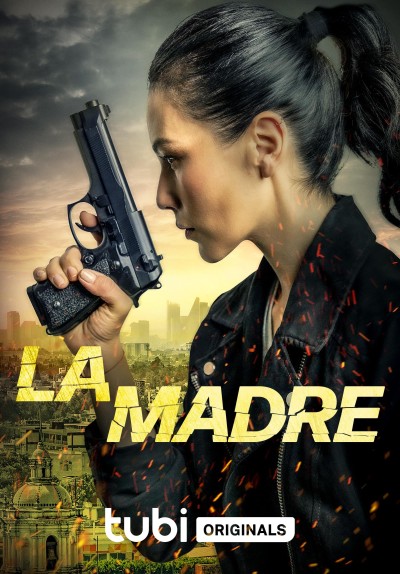 I ask, because this film, made in Mexico City and starring mostly Mexicans, seems to be trying to take place in America. It’s not doing a good job of it. The heroine is Martha (Mazarrasa), a single mother running a shop in a border American city with the help of her two daughters, Eva (Reynaud) and Raquel. Then Eva is kidnapped by evil Mexican cartel boss, El Chacal (Guerrerio), and held by him, even after Martha pays the requested ransom. However, it turns out Mom has a hidden past, which gave her a set of special skills. With the help of sympathetic cop, Juan Cinderos (Dulzaides), she sets out to bring down his organization and retrieve her daughter.
I ask, because this film, made in Mexico City and starring mostly Mexicans, seems to be trying to take place in America. It’s not doing a good job of it. The heroine is Martha (Mazarrasa), a single mother running a shop in a border American city with the help of her two daughters, Eva (Reynaud) and Raquel. Then Eva is kidnapped by evil Mexican cartel boss, El Chacal (Guerrerio), and held by him, even after Martha pays the requested ransom. However, it turns out Mom has a hidden past, which gave her a set of special skills. With the help of sympathetic cop, Juan Cinderos (Dulzaides), she sets out to bring down his organization and retrieve her daughter.
It might have worked better if everyone has spoken Spanish, and they’d actually set this in Mexico. Not that Mazarrasa’s English is bad. It’s far better than my Spanish. But early on, she tells her daughters, “Our family has been in this [American] city for generations.” Yet she sounds like she’s still dripping wet out of the Rio Grande: “Ey neeeed tu dooo zees!” It feels particularly fake to me, since I’m married to a first-generation Hispanic immigrant, so know Chris and her siblings sounds completely indistinguishable from native citizens. Literally nobody in the film speaks without a notable accent: the closest is El Chacal, the character you’d least expect to know English. It’s all tremendously off-putting.
The rest of the plotting is similarly shoddy, in particular the way Martha is able to infiltrate El Chacal’s operations and get them taken down from the inside, in a way Paul and his pals have been utterly unable to do. I get that she’s operating outside of the usual legal encumbrances, but building her history and doing more than slapping a wig on her as a disguise, would have gone a long way to avoid my eyebrow entering “Oh, really?” mode. The way a random cop like Paul gets to take part in police actions South of the “border” – quotes used advisedly – didn’t help. All told, too many elements here seem to have wandered into this Tubi Original, from a script discarded by the Hallmark channel.
Yet it’s not entirely worthless, with Mazarrasa just about able to hold things together through a decent central performance. She had a long-running role in Camelia La Texana, so has a handle on the more soapy elements here, and is capable of putting over the raw emotion appropriate to the circumstances. The individual pieces could have been re-arranged into an effective combination. Perhaps if Martha had gone full Liam Neeson from the moment Eva was kidnapped, telling El Chacal, “You just messed with the wrong madre…”, instead of wasting time faffing around, naively trying to negotiate and pay the ransom. That is quite at odds with the street-smart, take no prisoners approach she later shows. Maybe her brains were in the wig as well.
Dir: Mitchell Altieri
Star: Tamara Mazarrasa, Giovanna Reynaud, Javier Dulzaides, Alex Guerrero





 I’d be the first to admit, those issues likely extend beyond the characters in the movie, and probably extend to the script writers, because there are certainly… well, let’s just say, some novel concepts here. The heroine is Nina Nowak (Grochowska), a former Special Ops soldier, who had to fake her own death and give her son Maks up to adoption, for both their security. She’s been keeping an eye on Maks (Delikta) from afar, but after he’s abducted at the request of a gangster Nina took down, she needs to become considerably more hands-on. Rescuing Maks, however, will bring her into contact with a number of rather odd people, on both sides of the law.
I’d be the first to admit, those issues likely extend beyond the characters in the movie, and probably extend to the script writers, because there are certainly… well, let’s just say, some novel concepts here. The heroine is Nina Nowak (Grochowska), a former Special Ops soldier, who had to fake her own death and give her son Maks up to adoption, for both their security. She’s been keeping an eye on Maks (Delikta) from afar, but after he’s abducted at the request of a gangster Nina took down, she needs to become considerably more hands-on. Rescuing Maks, however, will bring her into contact with a number of rather odd people, on both sides of the law.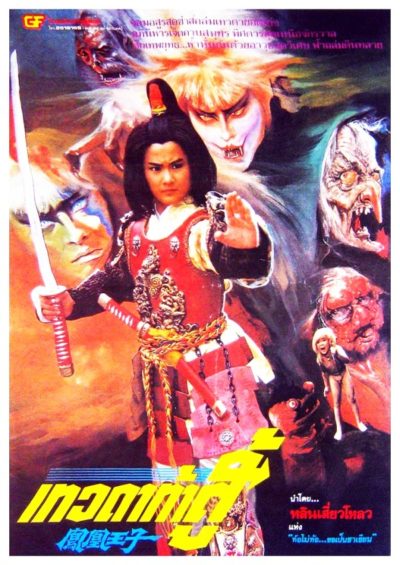 I am going to be entirely upfront, and state that any factual statements regarding the plot here will be entirely cribbed from other sources. Because, on my own, I have close to no clue as to the details of what was going. I got that some girl dressed as a guy, Little Flying Dragon (Lin, inevitably) was trying to protect Golden Boy (Chan) from a bunch of very strangely dressed weirdos with even more bizarre powers. They want Golden Boy for some nefarious purpose on behalf of an evil sorcerer type, who laughs maniacally. A lot. Everyone involved wears wigs which look like they were bought in bulk from Hair Metal R Us. There’s an acid pit, into which Golden Boy’s father is unceremoniously dropped. His mother is called “Evil Lady” in the subtitles, though she isn’t really. At one point, there’s a song whose lyrics according to the subs go, “Little Flying Dragon, Little Flying Dragon, change all the time, power breads everything.”
I am going to be entirely upfront, and state that any factual statements regarding the plot here will be entirely cribbed from other sources. Because, on my own, I have close to no clue as to the details of what was going. I got that some girl dressed as a guy, Little Flying Dragon (Lin, inevitably) was trying to protect Golden Boy (Chan) from a bunch of very strangely dressed weirdos with even more bizarre powers. They want Golden Boy for some nefarious purpose on behalf of an evil sorcerer type, who laughs maniacally. A lot. Everyone involved wears wigs which look like they were bought in bulk from Hair Metal R Us. There’s an acid pit, into which Golden Boy’s father is unceremoniously dropped. His mother is called “Evil Lady” in the subtitles, though she isn’t really. At one point, there’s a song whose lyrics according to the subs go, “Little Flying Dragon, Little Flying Dragon, change all the time, power breads everything.”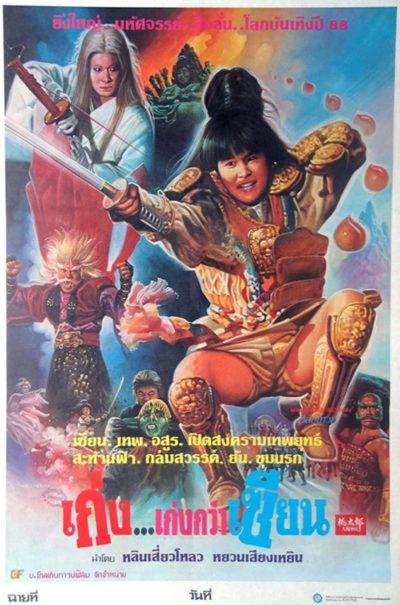 The best way to describe this, is perhaps to say that if I was nine years old, I would think it was the greatest movie I had ever seen. And I would likely be right, at the time. With the benefit of [redacted] more years, and several thousand additional movies under my belt… Not so much. Oh, it’s excessive, insanely imaginative and high energy, to be sure. However, it is also slapdash, incoherent and juvenile. Never mind appealing to nine-year-olds, it often feels like it was made by nine-year-olds. This explanation could be the most logical way to explain how the film manages to misspell its own name in the opening credits, calling itself Magic of Stell.
The best way to describe this, is perhaps to say that if I was nine years old, I would think it was the greatest movie I had ever seen. And I would likely be right, at the time. With the benefit of [redacted] more years, and several thousand additional movies under my belt… Not so much. Oh, it’s excessive, insanely imaginative and high energy, to be sure. However, it is also slapdash, incoherent and juvenile. Never mind appealing to nine-year-olds, it often feels like it was made by nine-year-olds. This explanation could be the most logical way to explain how the film manages to misspell its own name in the opening credits, calling itself Magic of Stell.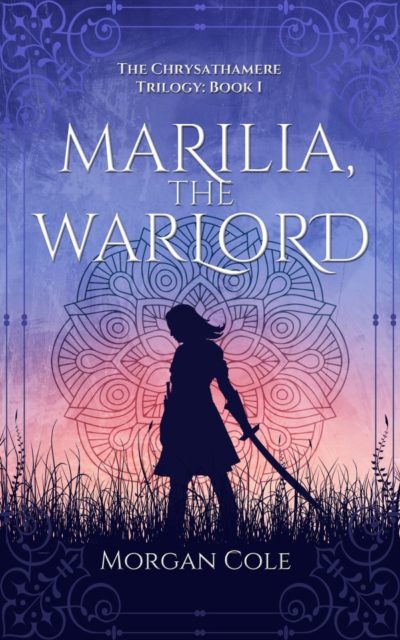 This is a fairly classic “rise from nowhere” story, yet is well-executed and done in a world which is interesting for its differences. The heroine is – surprise! – Marilia, whom we first meet on the battlefield, about to face an opponent of superior numbers. We then flash back to her childhood, growing up in a Tyracian brothel. Her mother was one of the “painted ladies,” but after she dies, Marilia and her brother Annuweth are on increasingly thin ice. Their effort to run away is unsuccessful, yet does bring them a chance at a new life. While it’s here that Marilia discovers her tactical savvy through board games, it’s not without its downside, the siblings being split up after Marilia enters an arranged marriage in another territory.
This is a fairly classic “rise from nowhere” story, yet is well-executed and done in a world which is interesting for its differences. The heroine is – surprise! – Marilia, whom we first meet on the battlefield, about to face an opponent of superior numbers. We then flash back to her childhood, growing up in a Tyracian brothel. Her mother was one of the “painted ladies,” but after she dies, Marilia and her brother Annuweth are on increasingly thin ice. Their effort to run away is unsuccessful, yet does bring them a chance at a new life. While it’s here that Marilia discovers her tactical savvy through board games, it’s not without its downside, the siblings being split up after Marilia enters an arranged marriage in another territory.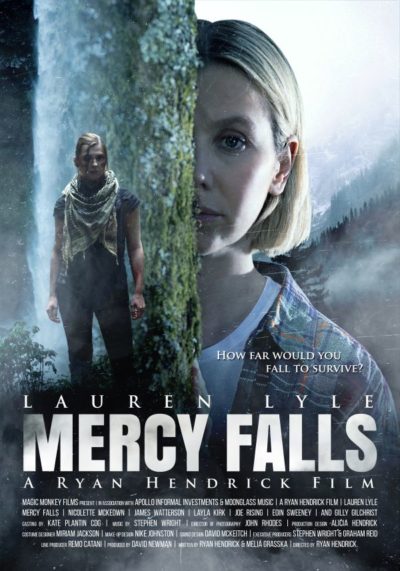 Even though I haven’t lived there since the eighties, I remain a sucker for a Scottish film. This delivers, with no shortage of rugged mountain landscapes, beautiful lochs, a ceilidh band and trees. So. Many. Trees. The foliage is understandable, because most of it takes places in the woods, where Rhona (Lyle) and her friends are looking for a cabin, deep in the wilds, which belonged to her late father. To help find it, they enlist the help of local Carla (McKeown), whom they meet down the pub when they have a pre-trip planning get-together. She initially seems fun to be with. But once they’re away from civilization, a shocking incident proves she… has issues, shall we say. And might not be the only one in the party.
Even though I haven’t lived there since the eighties, I remain a sucker for a Scottish film. This delivers, with no shortage of rugged mountain landscapes, beautiful lochs, a ceilidh band and trees. So. Many. Trees. The foliage is understandable, because most of it takes places in the woods, where Rhona (Lyle) and her friends are looking for a cabin, deep in the wilds, which belonged to her late father. To help find it, they enlist the help of local Carla (McKeown), whom they meet down the pub when they have a pre-trip planning get-together. She initially seems fun to be with. But once they’re away from civilization, a shocking incident proves she… has issues, shall we say. And might not be the only one in the party. Oh, dear. Where to start? Let’s get the positives out of the way. This looks reasonable enough, and clearly was not a poverty-row production. The central idea isn’t bad either: while a vigilante killer taking out misogynistic online sexists is a fairly ludicrous concept, if you squint a bit, you can see how it could have become an acerbic comment on the toxicity of social media. And that’s all I’ve got. For any potential is ruthlessly exterminated by staggeringly feeble execution. We’re there inside two minutes, when an unnamed Russian supermodel wakes, to get a video message from two pals vacationing in Morocco, then turns on the TV immediately to see a news report about them being executed by ISIS, with the video online for all to see. Wait, what?
Oh, dear. Where to start? Let’s get the positives out of the way. This looks reasonable enough, and clearly was not a poverty-row production. The central idea isn’t bad either: while a vigilante killer taking out misogynistic online sexists is a fairly ludicrous concept, if you squint a bit, you can see how it could have become an acerbic comment on the toxicity of social media. And that’s all I’ve got. For any potential is ruthlessly exterminated by staggeringly feeble execution. We’re there inside two minutes, when an unnamed Russian supermodel wakes, to get a video message from two pals vacationing in Morocco, then turns on the TV immediately to see a news report about them being executed by ISIS, with the video online for all to see. Wait, what? It has been a very quiet year for big-budget action heroine movies so far. Here we are, more than one-third of the way through 2023, and this Netflix Original is likely the highest profile entry to date. There is a certain pedigree here, albeit of the direct-to-streaming variety, with director Caro having also helmed the (considerably more expensive)
It has been a very quiet year for big-budget action heroine movies so far. Here we are, more than one-third of the way through 2023, and this Netflix Original is likely the highest profile entry to date. There is a certain pedigree here, albeit of the direct-to-streaming variety, with director Caro having also helmed the (considerably more expensive) 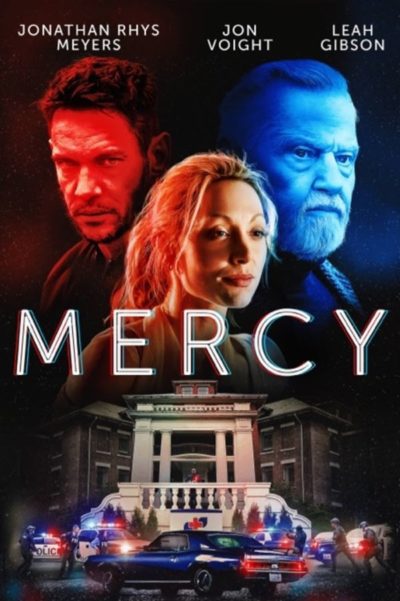 I’m almost tempted to leave it at that, because there are points where it feels like writer Alex Wright left it at that as well. Heroine Michele (Gibson) gets down to her vest? Check. Takes a walkie-talkie off a bad guy? Check. At one point, she even lost a shoe. If she’d gone crawling through an air-duct, I’d have flipped a table. Anyway, Michele is a former military doctor, now working in a civilian hospital. Rushing in one day is an FBI agent with Ryan Quinn, son of an Irish crime family, who was shot in an ambush after agreeing to flip on his relatives. Not far behind is family boss Patrick (Voight) and Ryan’s brother, Sean (Meyers), the latter intent on finishing the job.
I’m almost tempted to leave it at that, because there are points where it feels like writer Alex Wright left it at that as well. Heroine Michele (Gibson) gets down to her vest? Check. Takes a walkie-talkie off a bad guy? Check. At one point, she even lost a shoe. If she’d gone crawling through an air-duct, I’d have flipped a table. Anyway, Michele is a former military doctor, now working in a civilian hospital. Rushing in one day is an FBI agent with Ryan Quinn, son of an Irish crime family, who was shot in an ambush after agreeing to flip on his relatives. Not far behind is family boss Patrick (Voight) and Ryan’s brother, Sean (Meyers), the latter intent on finishing the job.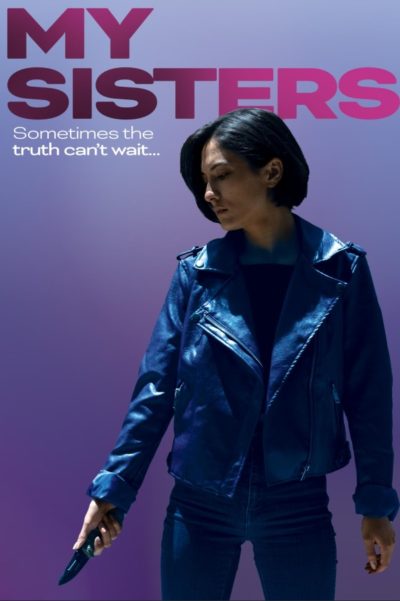 This felt oddly familiar, like I had watched it before. One scene in particular – a maintenance man comes to replace a light-bulb, only to become an apparent threat – had me
This felt oddly familiar, like I had watched it before. One scene in particular – a maintenance man comes to replace a light-bulb, only to become an apparent threat – had me